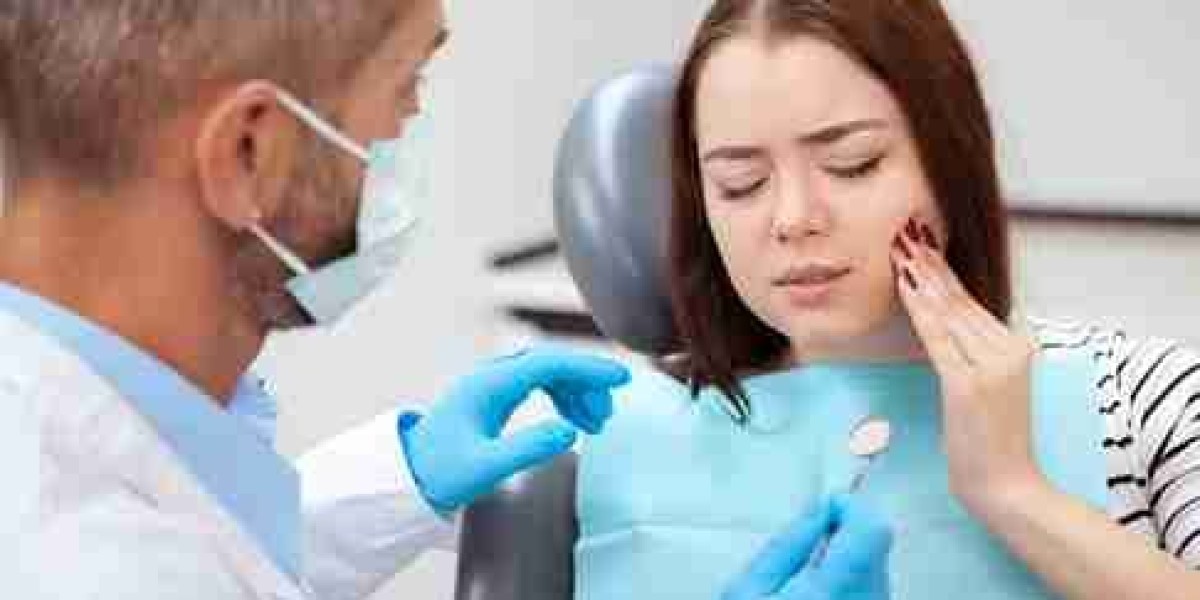Dental emergencies have a way of appearing when you least expect them, during a late-night meal, in the middle of a busy workday, or even on a relaxing weekend. These situations can cause not only intense discomfort but also significant anxiety, especially if you are unsure of how to react. A throbbing toothache, a knocked-out tooth, or sudden swelling may seem overwhelming, but with the right knowledge, you can manage pain, act effectively in the crucial first moments, and protect your long-term oral health.
This guide explores what qualifies as a dental emergency, common scenarios, practical relief measures, when to seek professional help, and preventive strategies. By the end, you will feel more confident about handling urgent dental issues should they arise.
Understanding Dental Emergencies
Not every dental problem requires urgent treatment, but some issues demand immediate action to avoid further complications. A dental emergency, as highlighted by a dentist in Woking, is typically defined as any situation where delaying treatment could result in permanent damage, severe pain, or risk of infection spreading.
Common urgent cases include:
- Severe and unrelenting toothache
- Knocked-out or loose tooth
- Dental abscess with swelling
- Jaw injuries or trauma
- Excessive bleeding in the mouth
In such cases, time is critical. Acting quickly and contacting a professional makes a significant difference to the outcome.
Common Dental Emergencies Explained
Dental emergencies come in many forms, each with its own risks and causes.
Severe Toothache
- Cause: Tooth decay, gum infection, or a cracked tooth.
- Risk: Ignoring pain can lead to deeper infection or abscess formation.
Knocked-Out Tooth
- Cause: Trauma from falls, sports injuries, or accidents.
- Risk: Permanent tooth loss if not treated promptly.
Broken or Chipped Tooth
- Cause: Biting hard foods, accidents, or weakened enamel.
- Risk: Exposed nerves can cause pain and leave the tooth vulnerable to decay.
Dental Abscess
- Cause: Bacterial infection around the root or gums.
- Risk: Infection may spread to surrounding tissues and even the bloodstream.
Soft Tissue Injuries
- Cause: Biting the tongue or cheek, sporting accidents, or sharp food.
- Risk: Persistent bleeding and discomfort if not managed properly.
Quick Reference Table: Emergencies and Risks
Emergency | Common Cause | Immediate Risk |
Severe toothache | Decay, infection | Spread of infection, ongoing pain |
Knocked-out tooth | Trauma, accident | Permanent loss of tooth |
Dental abscess | Bacterial infection | Risk of sepsis, swelling |
Broken/chipped tooth | Hard foods, accident | Sensitivity, further damage |
Soft tissue injury | Trauma, sharp food | Prolonged bleeding, infection |
Immediate Relief Measures
While only professional treatment resolves the root problem, there are steps you can take to manage pain and stabilise the situation.
Effective At-Home Actions
- Rinse with warm salt water: Cleans the affected area and soothes gums.
- Apply a cold compress: Reduces swelling and numbs the pain.
- Over the counter pain relief: Medications such as ibuprofen or paracetamol can ease discomfort.
- Keep knocked-out teeth moist: Store in milk or saline until you can see a dentist.
- Avoid chewing on damaged teeth: Prevents further harm and irritation.
Quick Relief Table
Method | Benefit |
Cold compress | Reduces swelling and discomfort |
Saltwater rinse | Cleans and soothes gums |
Pain relief (OTC) | Temporary control of pain |
Moist storage (tooth) | Increases chance of saving tooth |
These actions buy time but should never replace professional assessment and care.
When to Seek Professional Help
Temporary measures are helpful, but some signs demand urgent dental attention.
Seek immediate help if you experience:
- Severe or persistent toothache
- Swelling in the face or jaw
- Fever alongside dental pain
- Uncontrolled bleeding lasting more than 15 minutes
- Difficulty swallowing or opening the mouth
In such circumstances, contacting an emergency dentist in Woking ensures the right treatment is provided without delay. Quick intervention may save a tooth, halt infection, and prevent long-term damage. Similarly, visiting a dentist in Woking for follow-up care guarantees the underlying issue is resolved effectively.
Preventing Dental Emergencies
Prevention remains the best strategy. Many emergencies stem from neglect, poor oral hygiene, or avoidable accidents.
Daily Preventive Habits
- Brush twice daily with fluoride toothpaste
- Floss once a day to remove plaque between teeth
- Use an antibacterial mouthwash
Lifestyle Choices
- Limit sugary foods and drinks
- Wear a mouthguard during sports
- Avoid chewing hard foods, ice, or non-food items
Routine Care
- Visit your dentist regularly for check-ups
- Address minor issues like cavities early
- Seek advice promptly if you notice sensitivity or bleeding gums
By incorporating these practices, you reduce the risk of painful emergencies and protect your smile in the long term.
Psychological Impact of Dental Emergencies
Dental emergencies don’t just affect your teeth; they also impact your mental and emotional well-being.
Common psychological effects:
- Stress and anxiety: Worry about pain and possible treatment.
- Interrupted sleep: Ongoing discomfort keeps patients awake.
- Reduced confidence: Difficulty eating, speaking, or smiling comfortably.
- Frustration: Disruption of work, family life, and daily routines.
Addressing emergencies quickly not only restores oral health but also supports emotional well-being, helping you regain confidence and peace of mind.
Additional Topic: The Role of Hydration in Oral Health
People often underestimate hydration in oral care discussions, yet it plays an essential role in reducing the risk of dental emergencies.
Why hydration matters:
- Stimulates saliva production, which washes away bacteria.
- Neutralises harmful acids in the mouth.
- Keeps gums and soft tissues moist, reducing irritation.
- Supports natural remineralisation of enamel.
Practical hydration tips:
- Drink water frequently throughout the day.
- Replace sugary or acidic drinks with water.
- Keep a water bottle handy during exercise or work.
Something as simple as staying hydrated can significantly lower your risk of dental problems.
Conclusion
Dental emergencies often occur unexpectedly and can be both painful and stressful, but prompt action is key. Recognising urgent situations, using temporary relief strategies, and knowing when to seek professional help all contribute to safeguarding your oral health. Preventive practices, such as strong hygiene habits, regular check-ups, and even staying hydrated, remain vital for avoiding emergencies in the first place.When urgent dental support is required, professional care provides safe and effective solutions, ensuring long-term recovery. For trusted expertise and dependable guidance, patients can always rely on Woking.








